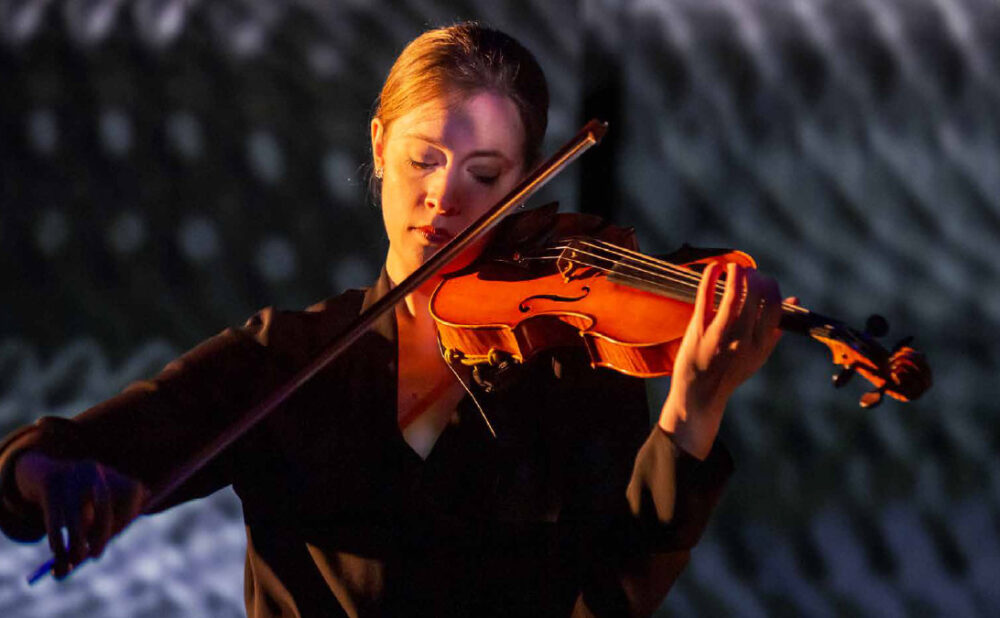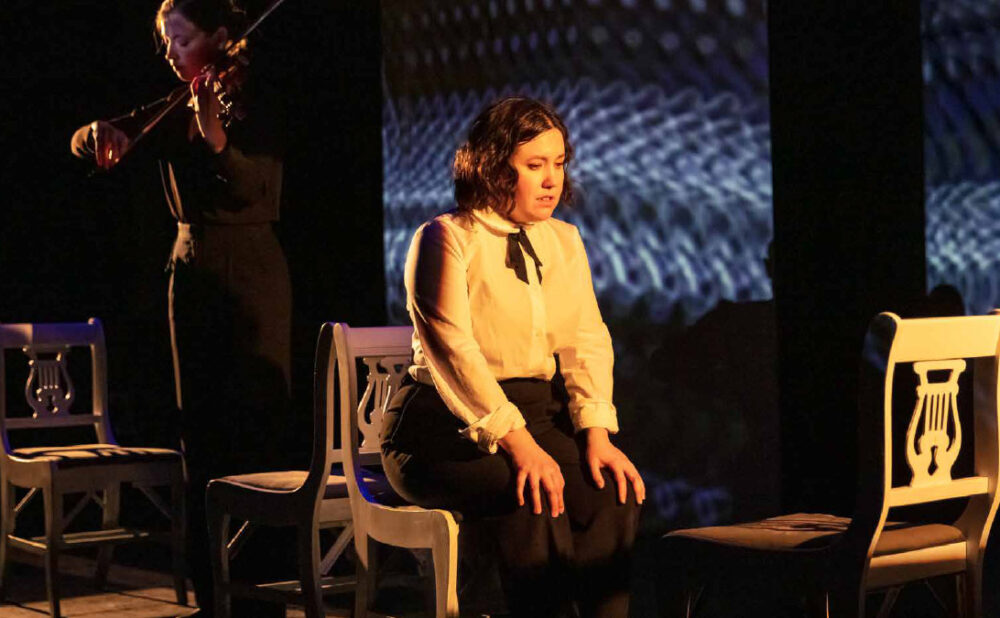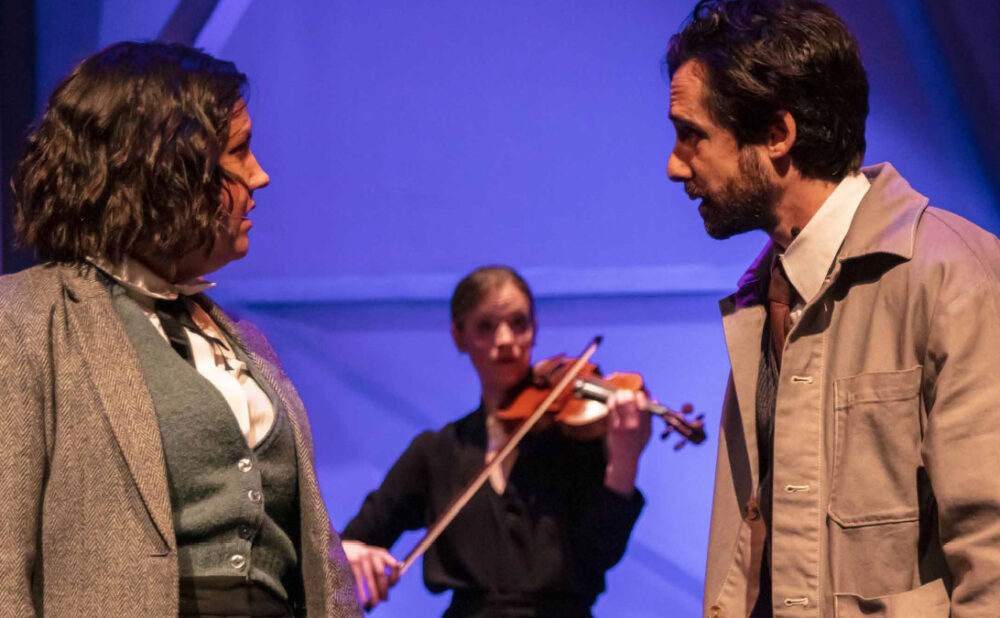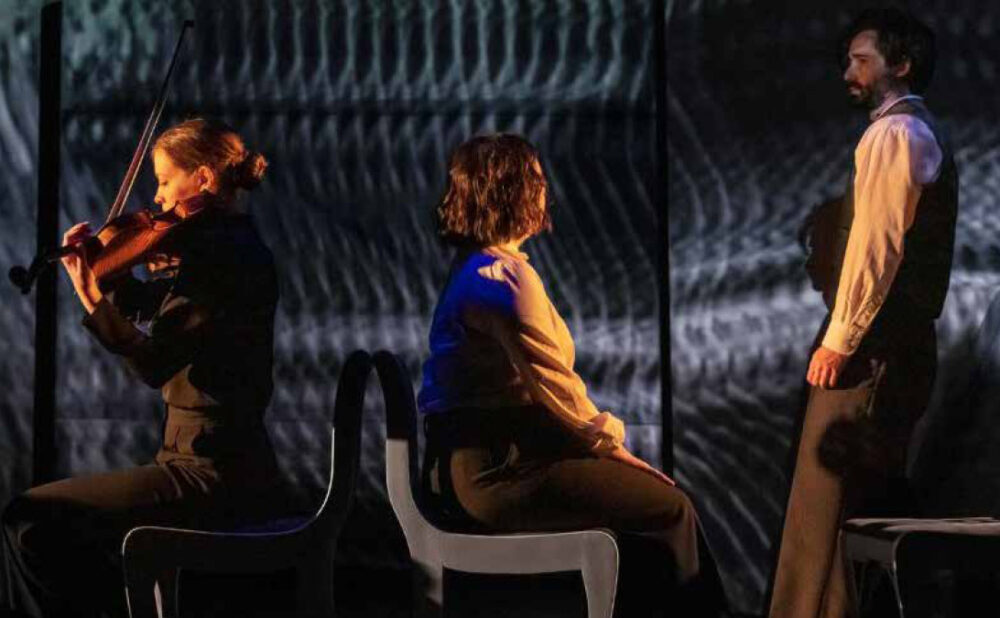Delinquent Theatre’s ‘Never the Last’ is a freshly structured bioplay
The show warmly unspools the story of Russian-Canadian composer Sophie Carmen Eckhardt-Gramatté
What: Never the Last
Where: Theatre Passe Muraille, 16 Ryerson Ave.
When: Now, until Sun., April 16
Highlight: The kinetic movement scores that punctuate the show’s second half
Rating: NNN (out of 5)
Why you should go: Its delicate, experimental structure, which it deftly leverages to raise questions about feminism, art and biography itself.
BERLIN, 1919. A young woman sits alone at a party, unimpressed by the babbling of the pretentious poets that surround her. To pass the time, she stares at an expressionist painting on the wall. A bearded man around the same age approaches her and strikes up a conversation. They hit it off, and by the end of the night, they’re sweetly sipping whiskey on the floor of the woman’s unfurnished house.
So begins Vancouver company Delinquent Theatre’s Never the Last, which has landed in Toronto for a week-long run at Theatre Passe Muraille. The woman, here called Sonia (Christine Quintana, also co-creator), is Sophie Carmen Eckhardt-Gramatté, a 20th-century composer who was born in Moscow but lived the last two decades of her life in Winnipeg. The man is German painter Walter Gramatté (Amitai Marmorstein), whom she married. But Never the Last is neither a Before Sunrise-style romance nor a traditional bioplay. Instead, it’s a constantly shifting narrative that — like Sonia herself — relentlessly defies expectations.
A 10-part Eckhardt-Gramatté violin solo provides the play’s structure. The context is ostensibly that a violinist (Molly MacKinnon, the other co-creator) is playing through the 10-piece suite at a concert that an older Sonia is watching. The pieces have names — like Happy Song, Sad Song, The Dance and The Departure of a Train — that prompt Sonia to look back on and narrate her relationship with Walter.
Due to the emotionally charged nature of the memories, however, Sonia is a fairly unreliable narrator. Though she at first tells her story with sly confidence, she eventually switches from lord to servant of her memories. This switch is apparent in Sonia’s relationship with The Violinist, which goes from friendly to adversarial: as Sonia’s memories become more painful to her, so too does the music. And she takes it out on the person playing it.
Though the first half of Never the Last is rather stagnant, the pace picks up as the conflict between Sonia and The Violinist brews. Presumably, because the story becomes too unbearable to put into words, the play begins to punctuate its scenes with kinetic movement scores. Dramatic side lighting by Jill White and bright projections by Joel Grinke lend this transformation extra potency; and the performances, buoyed by the contrast between long stretches of speechless physicality and emotional outbursts of text, soar here too.
Since that gradual narrative crumbling works so well, however, I found a summarizing monologue towards the end that explains Sonia’s breakdown unnecessary: the movement already speaks for itself quite powerfully.
But Never the Last stands out for its delicate, experimental structure, which it deftly leverages to raise questions about feminism, art and biography itself. Though it’s only in Toronto this week, I wouldn’t soon miss another Delinquent Theatre show, either here or in their native Vancouver.









